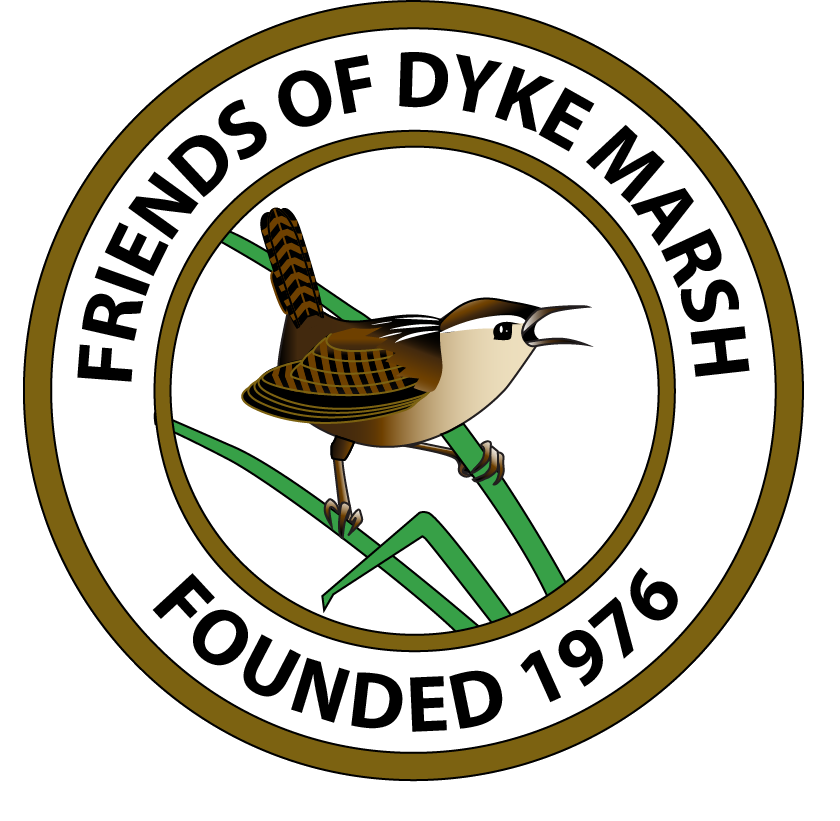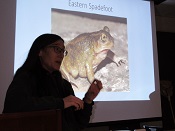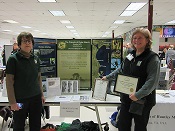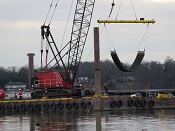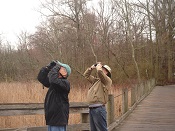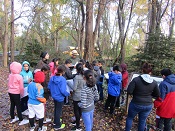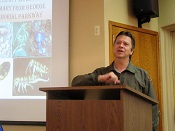Karen Sheffield explored the characteristics and importance of vernal pools to a rapt audience of 60 on March 3, 2019 at a meeting sponsored by the Friends of Dyke Marsh, Friends of Huntley Meadows Park, Friends of Mason Neck State Park and Friends of Accotink Creek. Ms. Sheffield is the manager of Huntley Meadows Park and Historic Huntley, Fairfax County Park Authority, and oversees a survey of vernal pools there.
News
On February 2, 2019, the Friends of Dyke Marsh again participated in Mount Vernon Supervisor Dan Storck's annual town meeting at Mount Vernon High School, at which Supervisor Storck and other officials reviewed his accomplishments and challenges facing the community. FODM had a table and materials in the exhibit hall alongside other friends’ groups. FODM volunteers greeted visitors and informed them about Dyke Marsh, the restoration project and FODM’s activities and goals.
In early January 2019, the Dyke Marsh restoration breakwater became more and more visible as crews from Coastal Design and Construction continued to install 50 to 55 “marine mattresses” each working day. By January 8, they had placed 2,900 in the south marsh. On January 9, crews on a work barge and a rock barge began putting armor stone on top of the mattresses near the shoreline. A surveyor on the shoreline monitors the tide level and helps ensure that the mattresses are placed at the right elevation.
During the current federal government closure, as of January 2, 2019, people can access the Dyke Marsh Wildlife Preserve trail and our Sunday, 8 a.m., bird walks are allowed. Therefore, the walks will resume on January 6. All restrooms are closed.
The National Park Service website (www.nps.gov) says that “for most parks, there will be no National Park Service-provided visitor services, such as restrooms, trash collection or facilities or road maintenance.”
On November 8, 2018, 37 enthusiastic fourth graders from the Arlington’s Randolph Elementary School explored the Dyke Marsh Wildlife Preserve with National Park Service staffers Brent O'Neill, Miguel Roberson and Susan Chumley, along with FODM volunteers.
On November 14, 2018, Brent Steury, Natural Resources Manager for the George Washington Memorial Parkway, told 65 FODMers and friends that the parkway is rich and biodiverse in its natural resources in a presentation describing the Parkway’s all-taxa inventory. The Parkway is a national park of which the Dyke Marsh Wildlife Preserve is a unit.
